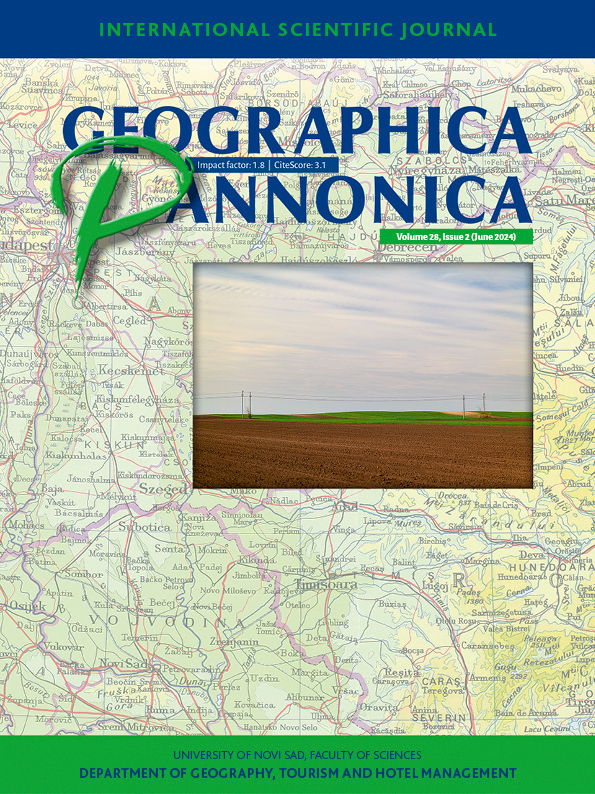What do they know? Is Climate Change Education Necessary in Primary Schools in Serbia
Abstract
Climate change is a global crisis exacerbated by human activity and a matter of urgent con- cern. There is a significant knowledge gap among primary school students in Serbia, as the topic of climate change is barely covered in the curriculum. This study examines their aware- ness, knowledge and attitudes. Of the participants, 96.6% are aware of climate change,
but their knowledge and attitudes vary considerably. Some 80.10% expect climate change to have a significant impact on humans through floods (90%), droughts and tempera-
ture increases (85% each). Further results show that schools are a key source of information (35.10%), followed by television (30.10%) and the internet (14.90%). In summary, this study highlights the need for comprehensive, multidisciplinary climate education to address dif- ferent levels of awareness, encourage informed and proactive responses and engage young voices in discussions about climate change.
References
Azevedo, J., & Marques, M. (2017). Climate literacy: A systematic review and model integration. International Journal of Global Warming, 12(3–4), 414–430. https://doi.org/10.1504/IJGW.2017.084789
Baarova, B., & Hibszer, A. (2022). Climate change education in Czech and Polish geography textbooks. Environmental and Socio-Economic Studies, 10(4), 35–45. https://doi.org/10.2478/environ-2022-0022
Enke, K. A., & Budke, A. (2023). Preparing students for a changing world: how geography curricula in Europe are tackling climate change. Frontiers in Education, 8(August), 1–12. https://doi.org/10.3389/feduc.2023.1216780
IPCC 2021. (2021). IPCC, 2021: Climate Change 2021: The Physical Science Basis. Contribution of Working Group I to the Sixth Assessment Report of the Intergovernmental Panel on Climate Change.
Karsgaard, C., & Davidson, D. (2021). Must we wait for youth to speak out before we listen? International youth perspectives and climate change education. Educational Review, 75(1), 74–92. https://doi.org/10.1080/00131911.2021.1905611
Khatibi, F. S., Dedekorkut-Howes, A., Howes, M., & Torabi, E. (2021). Can public awareness, knowledge and engagement improve climate change adaptation policies? Discover Sustainability, 2(1). https://doi.org/10.1007/s43621-021-00024-z
Mebane, M. E., Benedetti, M., Barni, D., & Francescato, D. (2023). Promoting Climate Change Awareness with High School Students for a Sustainable Community. Sustainability (Switzerland), 15(14), 1–15. https://doi.org/10.3390/su151411260
Nepraš, K., Strejčková, T., & Kroufek, R. (2022). Climate Change Education in Primary and Lower Secondary Education: Systematic Review Results. Sustainability (Switzerland), 14(22). https://doi.org/10.3390/su142214913
Sund, L. (2016). Facing global sustainability issues: teachers’ experiences of their own practices in environmental and sustainability education. Environmental Education Research, 22(6), 788–805. https://doi.org/10.1080/13504622.2015.1110744
Tibola da Rocha, V., Brandli, L. L., & Kalil, R. M. L. (2020). Climate change education in school: knowledge, behavior and attitude. International Journal of Sustainability in Higher Education, 21(4), 649–670. https://doi.org/10.1108/IJSHE-11-2019-0341

